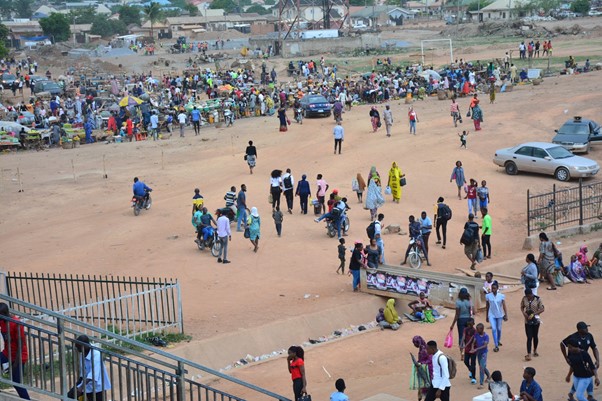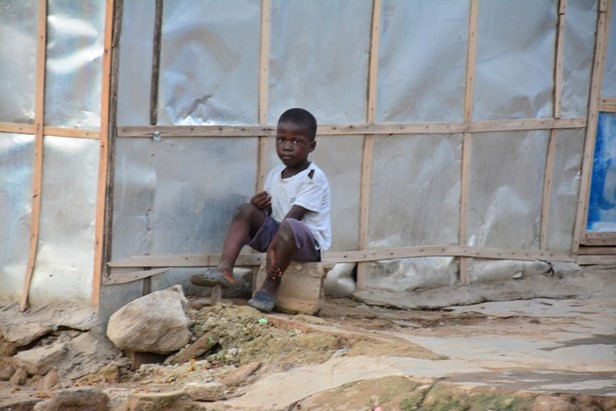Insecurity: Nigerians Are Having A Difficult Time Following The News
The country’s social and traditional media space is flooded daily with news of terrorist attacks, kidnappings and other types of such news. Here, HumAngle finds out how some citizens prefer to tackle that fear.

In the last few weeks, Nigerians have been hit with a series of bad news. From the abduction of six persons at Gauraka, Tafa Local Government Area (LGA) of Niger State, North-central Nigeria, to the murder of job seeker, Iniobong Umoren. There is also the constant battle in the Northeast against insurgents and spate of attacks in the Southeast.
With constant fear regarding personal safety, some respondents told HumAngle they have found ways to avoid bad news to protect their mental health.
Mercy Olaoye, a 24-year-old nurse in Ilorin, Kwara State, North-central Nigeria, said she deleted her Twitter account and stopped visiting news platforms to “keep [her] mental health and sanity in check.” She believes that not seeing or reading about tragedies will help her live a normal life.
“When I get bad news, I usually find myself palpitating. So my social media is now put off because no news is good news. I step out everyday with fear of what would happen and of not returning home,” Mercy said in between deep breaths.
“I love Nigeria, I want to live in this country and serve the country’s health sector effortlessly, but with these trends of insecurity and evil, I might just run to another country,” she added.

Speaking with HumAngle, a security and conflict reporting analyst, who is usually at the forefront of receiving crisis information, said he seldom has the thought that he could be the next victim.
“You could get updates of multiple attacks in a day or within days. Yes, I’m supposed to feel bad and pity for the victims, but it keeps happening everyday and doesn’t seem to stop,” the analyst said.
Chigozie Benedicta, a reporter in Abuja said she doesn’t feel worked up anymore when she has access to such information before reporting. However, the current trend of kidnap for ransom and the government’s attitude in tackling them, has affected how she travels.
“I now have to consider traveling by air anytime I need to make an interstate trip. Kidnapping used to be a thing for the rich and well known, but today we have ordinary citizens picked up at random,” Benedicta said.
Reacting to whether she would accept a job offer with mouth-watering pay in any of the Northwest or Northeastern states, Benedicta replied in the negative.
Omoyele lyanda, a female National Youth Service Corp (NYSC) member resident in Abuja, the Federal Capital Territory (FCT), lives in fear of being attacked or kidnapped.
“Sometimes I lie to sleep and gory images of the things I read in the media fill my imagination. How do these victims’ families survive the trauma? What pain do the victims go through? How do victims cope after the things they have been through? These thoughts haunt me even as I go to work,” she told HumAngle.
What mental health experts and psychologists say
Ayoka Flora Uchechimere, a mental health expert in Abuja, pointed out that crisis situations in Nigeria affect individuals in different ways.
“Anxiety disorder comes in various forms. A lot of Nigerians are now afraid to go out in public. No one knows who’s next. Every little disorderliness brings about fear due to one’s present state of mind. Where there is no danger, people will see danger. This could lead to panic attacks and social anxiety where one is afraid to go out. This is another form of mental disturbance.”
“For individuals who have experienced any form of such menace, whether it is kidnap, attack or death of a loved one, they are more likely to experience Post-Traumatic Stress Disorder (PTSD),” Flora said.
“The diagnosis is however dependent on the symptoms experienced by the individual, otherwise depression is likely to be seen,” she continued.
“Coping mechanisms adopted depend on each person’s experience and diagnosis. Some of these mechanisms are compensation, denial, displacement, identification, introjection, projection, reaction formation, rationalization, regression, repression, ritual, undoing, and sublimation,” Flora added.
A psychologist, Ogbonna Patricia Adanne, said a lot of Nigerians are now, more than ever before, mentally stressed from daily reportage of bad news, and this is aside from challenges of hunger and penury in the land. Also, this is made worse because mental stress can remain undetected until one sinks into depression.
“Insecurity breeds fear of the unknown. I have constantly created imaginary scenes of being stopped in transit and kidnapped even though I do not wish for it to happen. This affects our sanity,” Patricia said. “Fear makes humans vulnerable when it is consistent. It allows for mental unrest and overthinking, which is the state of many Nigerians.”
Support Our Journalism
There are millions of ordinary people affected by conflict in Africa whose stories are missing in the mainstream media. HumAngle is determined to tell those challenging and under-reported stories, hoping that the people impacted by these conflicts will find the safety and security they deserve.
To ensure that we continue to provide public service coverage, we have a small favour to ask you. We want you to be part of our journalistic endeavour by contributing a token to us.
Your donation will further promote a robust, free, and independent media.
Donate HereStay Closer To The Stories That Matter




